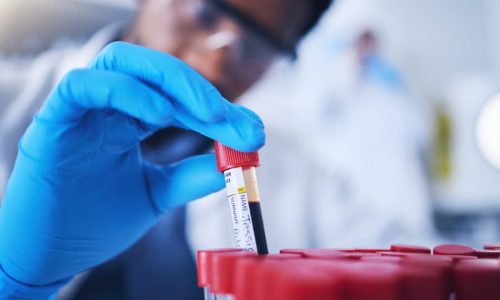When Should You See a Hematologist?
Blood is a crucial component of the body. The blood’s many important tasks include fighting infections, transporting oxygen from the lungs to the cells, and supporting core functions, such as body temperature. Blood disorders can have a dramatic effect on overall health.
Hematologists specialize in diagnosing, treating, and managing blood disorders, including those that affect the bone marrow and the lymphatic system, as well as blood itself. Knowing when to see a hematologist can be critical for receiving and accurate diagnosis and effective treatment of blood and related disorders.
Regional Cancer Care Associates (RCCA) offers advanced treatments to patients with a variety of health conditions, including blood disorders, in New Jersey, Connecticut, Maryland, and the Washington, D.C., area. Here, we explain the common signs and symptoms that could indicate a need to see a hematologist.

Signs and Symptoms of Blood Disorders
The specific blood disorder symptoms that a patient may experience depend on the person’s condition and how it impacts the body. However, these are some of the most common symptoms that could warrant further testing from a hematology specialist:
- Bleeding that is difficult to control (e.g., with a nosebleed or following a minor scrape or abrasion)
- Fatigue
- Pale mucous membranes
- Heavy menstrual bleeding at each period
- Swollen lymph nodes in the groin, armpits, or neck
- Night sweats
- Fever and chills
- Chest pain
- High frequency of infections
- Itchy skin or rash
- Constant weakness or fatigue
- Difficulty breathing
- Changes in appetite
- Frequent nausea
Most Common Blood Conditions
Hematology conditions include several types of disorders affecting red blood cells, white blood cells, platelets, blood vessels, bone marrow, lymph nodes, the spleen, and the proteins involved in bleeding and clotting. Blood diseases can be benign (noncancerous) disorders or malignant (cancerous).
Benign Blood Disorders
Anemia
Anemia occurs when there are insufficient red blood cells to carry oxygen throughout the body. It often stems from iron deficiency or a chronic disease. Hemolytic anemia is a more complex form of the condition. Other related conditions include:
- Sickle cell disease
- Thalassemia
- Drug-induced hemolytic anemia pyruvate kinase deficiency (PKD)
- Glucose-6-phosphate dehydrogenase (G6PD) deficiency
- Autoimmune hemolytic anemia (AIHA)
- Pregnancy-associated HELLP syndrome
Blood Clotting Disorders
Blood clotting is the body’s response to excessive bleeding, usually after a traumatic injury. Proteins and particles in the blood (platelets) adhere together to form a clot. Blood clotting disorders enable clots to form anywhere in the body, potentially blocking arteries and veins. Blood clotting conditions include:
- Phlebitis/deep vein thrombosis/pulmonary embolism
- Thrombophilia
- Antiphospholipid syndrome (APS)
Bleeding Disorders
Bleeding disorders disrupt the body’s ability to form clots when necessary. This can be due to a lack of platelet production or other problems. Bleeding disorders include:
- Von Willebrand disease
- Hemophilia
- Clotting factor deficiencies
Thrombocytosis and Thrombocytopenia
Thrombocytosis and thrombocytopenia refer to conditions in which the body produces either an excessive or an insufficient amount of platelets. These are some related conditions:
- Bernard-Soulier Syndrome
- Immune thrombocytopenia
- Idiopathic thrombocytopenic purpura
- Drug-induced thrombocytopenia
- Hemophagocytic lymphohistiocytosis (HLH)
- MYH9-macrothrombocytopenia disorders
Hemochromatosis
Patients with hemochromatosis store excessive levels of iron in organs such as the pancreas, liver, and heart, which can lead to complications.
Blood Cancers
Leukemia
Originating in blood-forming tissues, leukemia develops when blood cells grow and divide out of control. This overpopulation crowds out healthy blood cells, leading to a decrease in platelets and red and white blood cells. There are four main types of leukemia:
- Acute lymphocytic leukemia (ALL)
- Acute myelogenous leukemia (AML)
- Chronic lymphocytic leukemia (CLL)
- Chronic myelogenous leukemia (CML)
Lymphomas
A general term for cancer in the lymphatic system, lymphoma begins in white blood cells within the body’s immune system. There are two main lymphoma categories — Hodgkin lymphoma and non-Hodgkin lymphoma.
Multiple Myeloma
Starting in the bone marrow’s plasma cells, multiple myeloma is considered a malignant plasma cell disorder and can lead to kidney, bone, and immune system damage.
These are some other types of malignant blood conditions:
- Myeloid (white blood cell) disorders
- Myeloproliferative Neoplasms(MPNs)
- Myelodysplastic syndrome
- Aplastic anemia
- Paroxysmal nocturnal hemoglobinuria
You Can Trust the Hematologists at Regional Cancer Care Associates
Regional Cancer Care Associates provides attentive, compassionate hematology care to patients and families in New Jersey, Connecticut, Maryland, and the Washington, D.C., area. The RCCA team of highly trained and experienced hematologists possesses the knowledge and skill to accurately diagnose and effectively treat both cancerous and noncancerous hematologic conditions. Dedicated to providing patients with the most advanced treatment, RCCA physicians draw on the most recent advances in hematology care to select appropriate and effective treatment for their patients.
For more information regarding the common symptoms of blood disorders, or to speak with a qualified healthcare provider, contact Regional Cancer Care Associates or request an appointment at one of RCCA’s more than 20 locations today.